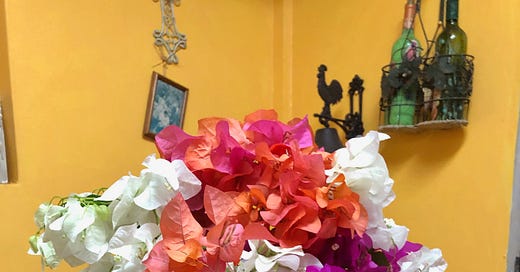The Lord’s Supper
Today we enter into the solemn and sacred memory of Holy Thursday, also called Maundy Thursday—from the Latin mandatum, meaning ‘commandment.’ It marks the first day of the Paschal Triduum. On this day, Jesus gathered with His disciples in an upper room to share what we now call The Lord’s Supper. We imagine that we are one of the apostles in the upper room with Jesus.
This is a very traditional meal commemorating the ‘Passover Meal’ in Egypt before the Exodus and it is filled with imaginative memory and symbolism. On this occasion we may be experiencing mixed feelings of celebration, concern and confusion since Jesus has been telling us of his impending passion and death.
Today Jesus adapts the traditional meal and He establishes a new rite of the Sacrament of Holy Communion. He institutes the Eucharist and commands His apostles to celebrate it until his return. He constitutes them priests of the New Testament and demonstrates how they should love one another, by the washing of their feet.
I invite us to imagine what it may have felt like for the apostles, having their feet washed by their master and who they tentatively believed was the long awaited messiah. We enter into Peter’s refusal of the messiah washing his feet (John 13: 1-15).
Holy Thursday invites us to be still and silent at the table of the Lord and take in the depth of what is offered. By the washing of feet he purified them and us from our sins, ‘He washed away our sins’. In the breaking of bread, Jesus offers us new manna, the miraculous food source provided by God to the Israelites during their 40-year journey through the desert after the Exodus from Egypt. He Himself is the new manna, He feeds us with His body.
Today, we also reflect on the sacred tables in our own lives—the dinner table where we gather with family, even when the conversation is hard or the silence heavy. We think of the time we sat up with a sick child or elderly parent, or the moment we forgave a friend who had deeply hurt us. Maybe we remember helping a neighbor fix a flat car tyre, or being on the receiving end of a home-cooked meal when we were grieving. These were all washing experiences and we fed on Christ to give us the strength.
In these simple, familiar moments—saying ‘I’m sorry’ when it’s hard, showing up for someone even when we’re running on empty—we are called to love in ways that stretch us. These are our upper room moments, the ordinary places of our lives where God’s grace enters quietly, transforming the moment without fanfare.
Probably we are facing such a time this Holy Week, a time of vulnerability, when to love is difficult. If so, I urge us to reflect on Jesus as He kneels to wash our feet, even as He thinks of His impending passion and death. Let us draw close to the One who gives everything, even His body to eat, and in doing so, find the courage and strength to love as He commands. This is not an easy love, but it is the kind of love that saves the world.




